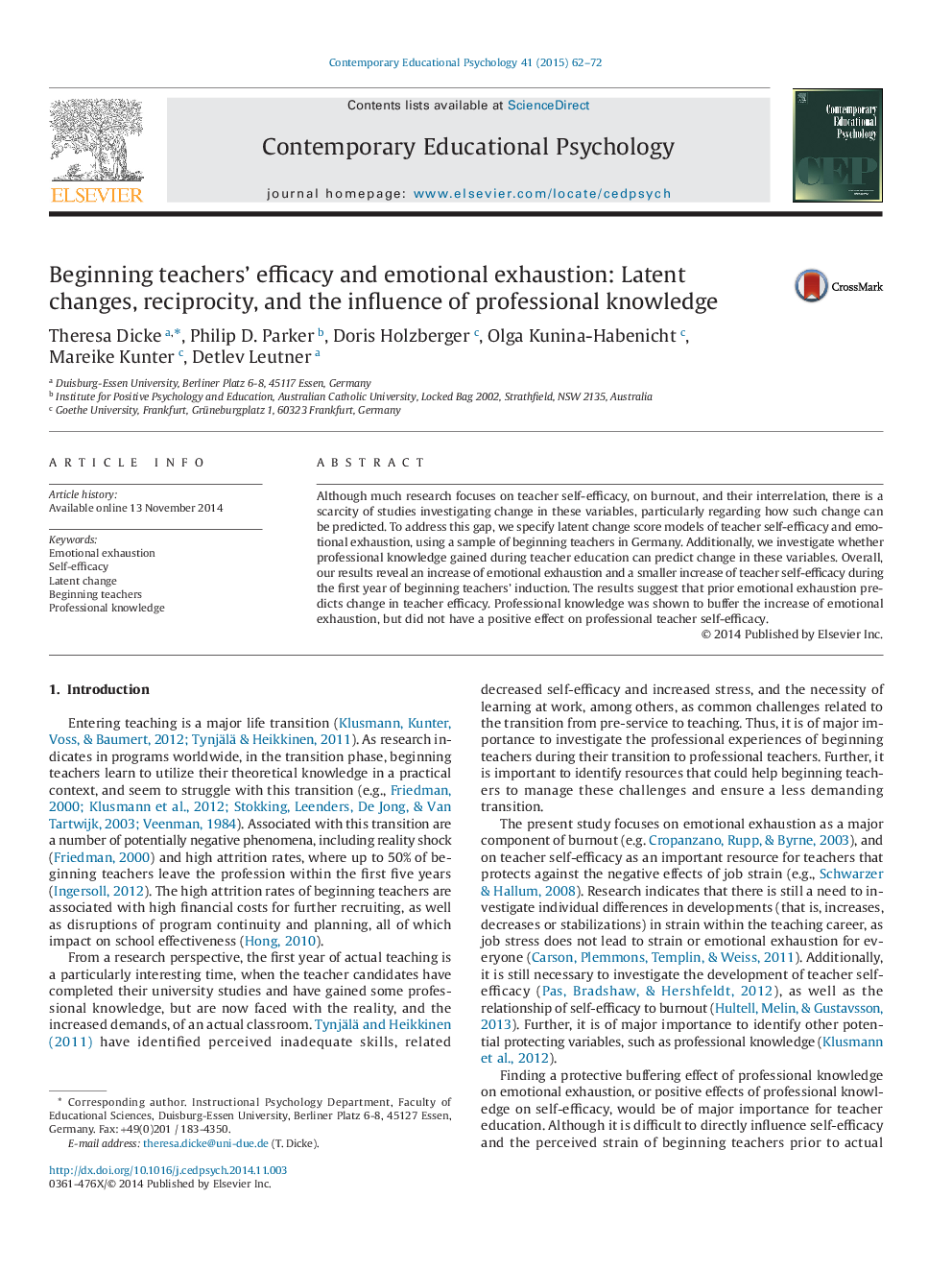| Article ID | Journal | Published Year | Pages | File Type |
|---|---|---|---|---|
| 352612 | Contemporary Educational Psychology | 2015 | 11 Pages |
•Application of (bivariate) latent change models in beginning teachers' occupational development.•Within-person Change: increase of emotional exhaustion and teacher self-efficacy.•Between-person differences in change: strong growth in one variable is related to less growth or even decline in the other.•High levels of professional knowledge buffer the increase of emotional exhaustion.
Although much research focuses on teacher self-efficacy, on burnout, and their interrelation, there is a scarcity of studies investigating change in these variables, particularly regarding how such change can be predicted. To address this gap, we specify latent change score models of teacher self-efficacy and emotional exhaustion, using a sample of beginning teachers in Germany. Additionally, we investigate whether professional knowledge gained during teacher education can predict change in these variables. Overall, our results reveal an increase of emotional exhaustion and a smaller increase of teacher self-efficacy during the first year of beginning teachers' induction. The results suggest that prior emotional exhaustion predicts change in teacher efficacy. Professional knowledge was shown to buffer the increase of emotional exhaustion, but did not have a positive effect on professional teacher self-efficacy.
